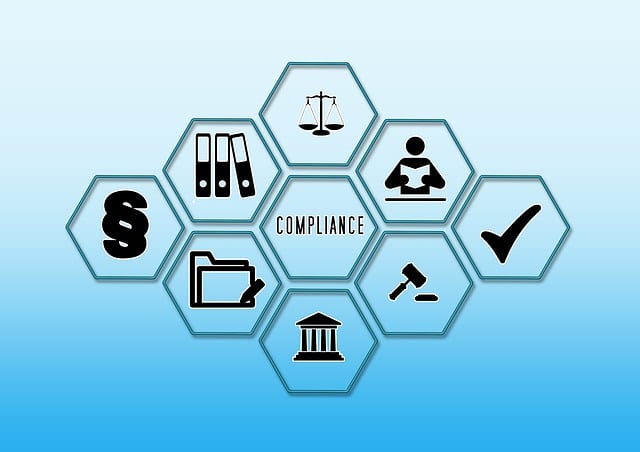This blog focuses on the emerging role of sustainability within chemical safety and compliance. It focuses on the evolving global standards, regulations and compliance management. The blog also explores how innovation and data-driven approaches can help organizations to adopt sustainable practices when it comes to chemical safety.
In today’s rapidly changing industrial landscape, the integration of sustainability into chemical safety and compliance has become not just a trend, but a necessity. The evolving role of sustainability in this field is driven by heightened awareness of environmental impact, stringent global standards, and the increasing importance of corporate responsibility. As companies strive to meet these demands, they must navigate a complex web of regulations, compliance management, and sustainable practices.
The Intersection of Chemical Safety and Sustainability
Chemical safety has traditionally focused on preventing accidents and health hazards in the workplace. However, the concept has expanded significantly over the years to incorporate environmental protection and sustainable practices. This shift is crucial, as the chemical industry is one of the largest contributors to environmental pollution. Integrating sustainability into chemical safety ensures that companies not only protect their employees and consumers but also minimize their environmental footprint.
Sustainability in chemical safety involves adopting practices that reduce hazardous waste, lower emissions, and promote the use of safer, eco-friendly chemicals. This holistic approach requires companies to re-evaluate their entire supply chain, from raw material sourcing to production processes and product disposal. By doing so, they can identify opportunities to reduce their environmental impact while maintaining high safety standards.

Global Standards and Regulatory Landscape
The regulatory landscape for chemical safety is becoming increasingly stringent, with global standards altering significantly. Organizations such as the International Organization for Standardization (ISO) and the European Chemicals Agency (ECHA) have established frameworks that set benchmarks for chemical safety and sustainability. Compliance with these global standards is essential for companies operating in multiple regions, as it ensures a consistent approach to chemical safety and environmental protection.
One of the most significant regulations in this area is the European Union’s Registration, Evaluation, Authorisation, and Restriction of Chemicals (REACH) regulation. REACH aims to protect human health and the environment by requiring companies to register and assess the safety of their chemicals. This regulation also encourages the use of alternative substances and technologies that are less harmful to the environment, thereby promoting sustainability.

Compliance Management in the Age of Sustainability
Effective compliance management is critical for ensuring chemical safety and adherence to global standards. This process involves tracking regulatory changes, maintaining accurate records, and conducting regular audits to identify and address potential risks. With the growing emphasis on sustainability, compliance management has evolved to include sustainability metrics and reporting.
Modern compliance management systems leverage technology to streamline these processes. For instance, digital platforms can track chemical inventories, monitor regulatory updates, and generate compliance reports. These tools also facilitate data analysis, enabling companies to identify trends and make informed decisions about their chemical safety practices. By integrating sustainability metrics into compliance management, companies can demonstrate their commitment to environmental protection and regulatory compliance.

Data-Driven Approaches to Chemical Safety
Data plays a crucial role in enhancing chemical safety and compliance management. Companies collect and analyze vast amounts of data related to chemical usage, emissions, and waste generation. This data provides valuable insights that can drive improvements in safety practices and sustainability efforts.
For example, data analysis can identify patterns in chemical incidents, helping companies to implement preventive measures. It can also reveal inefficiencies in production processes, allowing for the optimization of resource use and reduction of waste. Furthermore, data-driven approaches enable companies to track their progress towards sustainability goals and report their achievements to stakeholders.
A case in point is the use of predictive analytics to anticipate potential chemical hazards. By analyzing historical data and current conditions, companies can predict where and when incidents are likely to occur, enabling them to take proactive measures. This not only enhances safety but also supports sustainability by preventing environmental contamination.

Innovations in Sustainable Chemical Safety Practices
Innovation is at the heart of integrating sustainability into chemical safety. Companies are increasingly adopting green chemistry principles, which focus on designing products and processes that minimize the use and generation of hazardous substances. This approach not only enhances safety but also reduces environmental impact.
One notable innovation is the development of safer alternatives to hazardous chemicals. For instance, researchers are exploring bio-based chemicals derived from renewable resources as substitutes for traditional petrochemicals. These bio-based chemicals are often less toxic and more biodegradable, making them a sustainable choice for various applications.
Another innovation is the use of advanced materials that improve chemical safety. Nanotechnology, for example, is being used to create materials that are more resistant to corrosion and degradation, thereby reducing the risk of chemical leaks and spills. These materials also have the potential to enhance the efficiency of chemical processes, further supporting sustainability efforts.
The Role of Corporate Responsibility
Corporate responsibility plays a significant role in promoting chemical safety. Companies are increasingly recognizing that their actions have a profound impact on society and the environment. As a result, they are adopting sustainable practices not only to comply with regulations but also to meet the expectations of stakeholders, including customers, investors, and employees.
Sustainability initiatives often go hand-in-hand with corporate responsibility programs. For example, many companies have established environmental stewardship programs that focus on reducing their ecological footprint. These programs may include initiatives such as reducing greenhouse gas emissions, conserving water, and promoting recycling and waste reduction.
By integrating sustainability into their corporate responsibility strategies, companies can enhance their reputation and build trust with stakeholders. This, in turn, can lead to increased customer loyalty, improved employee morale, and greater investor confidence.
Challenges and Opportunities
While the integration of sustainability into chemical safety presents numerous opportunities, it also comes with challenges. One of the main challenges is the cost associated with implementing sustainable practices. For many companies, especially small and medium-sized enterprises, the financial investment required for new technologies and processes can be significant.
Another challenge is the complexity of regulatory compliance. With multiple regulations and standards to adhere to, companies must navigate a complex and ever-changing landscape. This requires ongoing monitoring and adaptation, which can be resource-intensive.
However, the benefits of integrating sustainability into chemical safety far outweigh these challenges. Companies that embrace sustainability can achieve long-term cost savings through improved efficiency and reduced waste. They can also gain a competitive advantage by differentiating themselves as leaders in environmental responsibility.
Conclusion
The evolving role of sustainability in chemical safety and compliance is a testament to the growing recognition of the interconnectedness between human health, environmental protection, and corporate responsibility. By adopting sustainable practices, companies can ensure the safety of their employees, protect the environment, and meet the expectations of stakeholders.
As the regulatory landscape continues to evolve, companies must remain vigilant and proactive in their compliance management efforts. Leveraging data-driven approaches and innovative technologies can help them navigate this complex landscape and achieve their sustainability goals.
How can Elchemy help your company to combine sustainability and chemical safety?
The integration of sustainability into chemical safety is not just a regulatory requirement; it is a strategic imperative for companies that want to thrive in the modern industrial world. By prioritizing sustainability, companies can create a safer, healthier, and more sustainable future for all.
Elchemy.com provides businesses with sustainable chemical sourcing solutions by offering custom manufacturing and efficient supply chain management. Our technology-driven platform ensures quality assurance and regulatory compliance, helping companies meet global standards. Elchemy’s focus on innovative, eco-friendly chemical formulations and robust process expertise enables businesses to integrate sustainability with chemical safety seamlessly.
Additionally, our rigorous supplier vetting process and advanced logistics minimize environmental impact while maintaining cost competitiveness. This comprehensive approach supports businesses in achieving both safety and sustainability goals effectively. To partner with Elchemy for chemical sourcing, reach out to us today.











